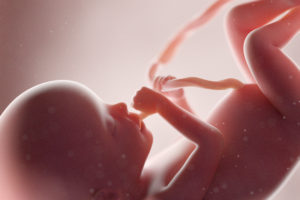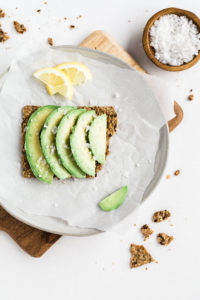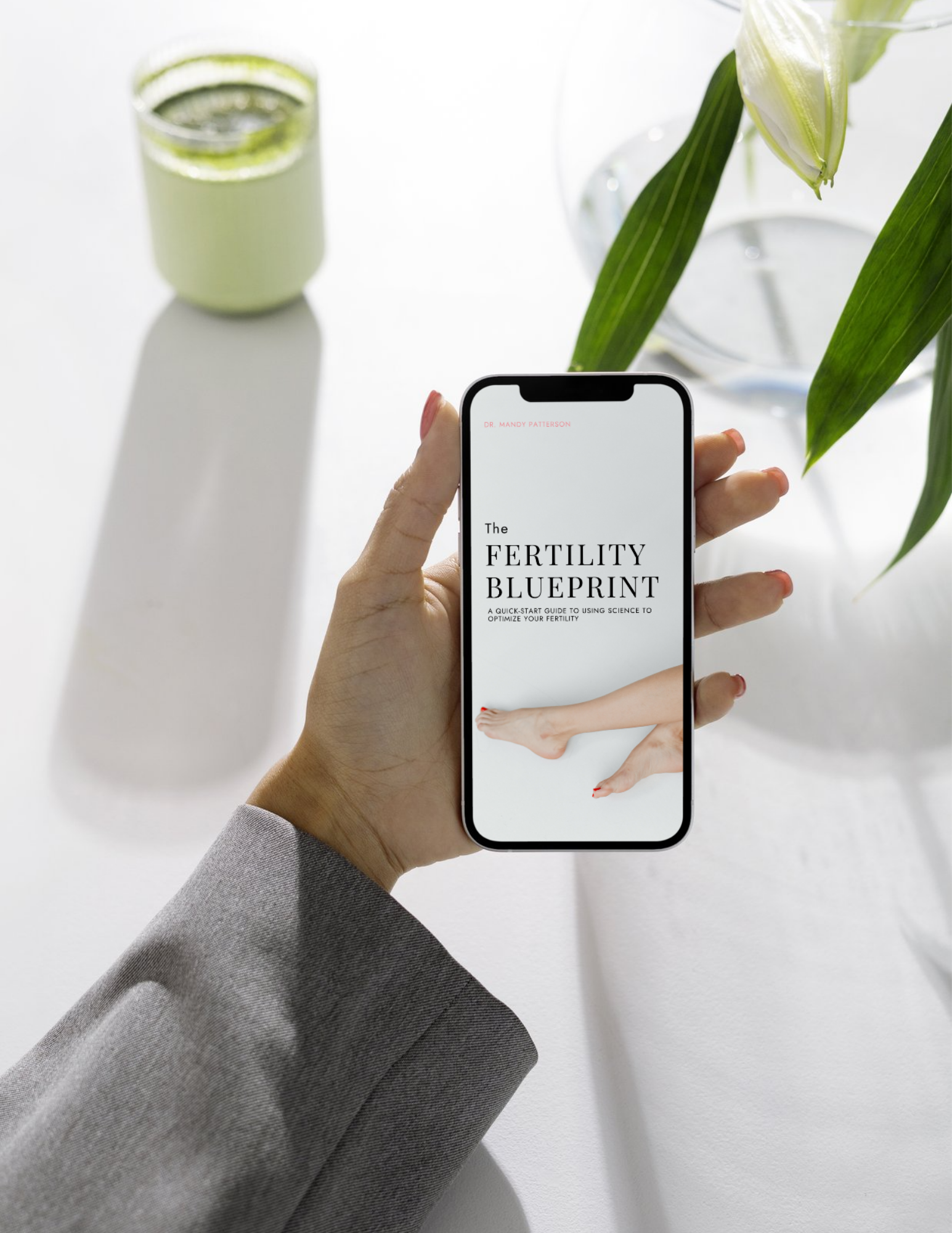Hey mama! You might have just gotten news that you’re expecting and you want to do everything in your power to protect your health and the health of your unborn baby. Or maybe you are just contemplating getting pregnant in the near future and exploring ways to optimize your health for pregnancy? Regardless of where you are at in your fertility journey, it is never too late to make positive changes in your diet and lifestyle. Pregnancy can be a challenging time for many reasons including morning sickness, hormonal imbalances, and unrelenting fatigue. It is important to equip yourself with knowledge so you can make the best decision for yourself and your little one.
In this article, we are going to discuss how to optimize your health and your baby’s health with diet and explore other core principles of functional medicine such as stress management and cleaning up the personal care and cleaning products in your household. That’s right, you heard me ladies, we’re going to dive deep into the impact of nutrition and other lifestyle choices on your health and that of your baby’s. So, grab yourself a warm cuppa of some herbal tea and a snack, and sit back and relax.
Health Begins in the Womb

“Early interventions during the prenatal period and the first few postnatal years, the time when tissues are forming and the epigenetic system is most sensitive to environmental insults, have the potential to lead to improved lifelong health.”
More people are beginning to understand that the conventional medical system is more reactionary versus preventative. The reduction of symptoms is not the same thing as the prevention of disease, and that’s where functional medicine truly shines and should be our primary care model. Functional medicine practitioners seek to educate, inspire and empower people to implement positive lifestyle factors for the prevention of disease and dysfunction from happening in the first place. The developmental origins of health and disease theory (DOHaD), or the Barker Hypothesis, is based upon the concept that the health of a unique individual begins at the time of their fertilization and implantation into the womb. Ummm, mind blowing, right? Yeah, you heard me. Our level of wellness begins before we are ever born into this world. Keep reading to understand how important it is for a couple to have optimal health before they consider bringing a new life into the world.
According to the Barker Hypothesis, health actually begins in the womb. A British research, David Barker, proposed the DOHaD theory after his incredible study on the origins of cardiovascular disease. He found that smoking or other expected lifestyle causes were not actually the biggest predictors of a person developing cardiovascular disease. Actually, it was their weight at birth. His research found that babies born small to malnourished mothers are at a higher risk for hypertension and coronary heart disease, as well as type 2 diabetes, later in life.
Incredibly, Barker’s research has been replicated and expanded over the last thirty years. It has expanded into the fields of epigenetics and nutrigenomics. We now know that under- or over nutrition can both be tied to various disease states. Additionally, these conditions are linked to very specific nutritional decisions, making it even more urgent for couples to make better choices not only for themselves but for the health of their future family and the generations to come.
To expand further on this topic further, according to a comprehensive review of the research, “early interventions during the prenatal period and the first few postnatal years, the time when tissues are forming and the epigenetic system is most sensitive to environmental insults, have the potential to lead to improved lifelong health.”
So, while mom’s diet and lifestyle choices impact her own health, they also impact the baby’s health. Let’s dig into some of the nutritional research on disease that is linked to in utero nutrition.
Nutritional Research

The standard American diet is heavy in sugar, refined carbohydrates and trans fats. Overconsumption of these foods can have long-term consequences on health and can contribute to complications in pregnancy such as gestational diabetes and preeclampsia.
At this point you are probably wondering what type of diet could make such a huge impact on your health and that of your baby’s. Well, unfortunately, the main culprit is the Western-style diet that is heavy in sugar, refined carbohydrates, and trans fats. Research has documented the standard American diet (SAD) being the main predictor of disease later in life.
Diabetes and Obesity – Research shows that mothers who consume high levels of gluten could increase the risk of their children developing type 1 diabetes. Further, another study shows that while the mother’s intake of gluten in pregnancy was not associated with type 1 diabetes, a higher intake of gluten by the child at an early age may result in a higher risk of type 1 diabetes. More research needs to be conducted to have a definitive answer, however, there’s no mistaking the importance of diet in both studies.
Cognition – Maternal diets high in sugar, especially sugary drinks like soda and other sugar-sweetened beverages, are linked to babies with poor childhood cognition. The same study states that childhood consumption of fruit may lead to improvements in cognition. Another food that benefits childhood cognition is fish. One study suggests that fish consumption during pregnancy may be associated with improved neurodevelopment in infants.
ADHD – There are several studies on the connection between maternal diets and attention-deficit hyperactivity disorder (ADHD). For example, mothers whose diet was low in HDL cholesterol were associated with an increased risk of having children with ADHD, especially in boys. Another study shows that a diet high in fat and sugar from processed foods was linked to ADHD symptoms in children who displayed behavioral problems early in life.
Skeletal – Emerging evidence and research shows that there may be a link between maternal nutrition and long term influences on bone metabolism in their offspring.
What Should You Eat Before, During, and After Your Pregnancy?
It’s clear that your diet has far reaching consequences. Research is still being done on epigenetics and the connections between maternal diets and infant health post-birth into childhood, adolescence, and adulthood. Most of us desire to eat healthy, but it can be hard when our motivation starts to waiver. If you’re planning to get pregnant or an expecting momma, just remember that your diet has consequences for your health AND your baby’s health and for generations to come.
So, what do you eat? I’m glad you asked! I find that a Mediterranean style diet or eating more like our ancestors is a good place to start. To simplify this, it means a diet rich in plant-based foods including fruits, vegetables, nuts, seeds, legumes, herbs, spices, fish, seafood, grassfed meat, and extra virgin olive oil. This dietary plan is high in antioxidants and phytonutrients which helps to negate gut issues, nutritional deficiencies and chronic health disease.
If you are eating a diet high in sugar and processed foods that cause inflammation, try shifting towards whole foods and reduce your sugar intake. The key is to include plenty of vegetables, good fats, a good amount of protein, and small amounts of starch and fruit.

It’s clear that your diet has far reaching consequences. Research is still being done on epigenetics and the connections between maternal diets and infant health post-birth and into adulthood. The consumption of healthy fats, good quality protein sources, and complex carbohydrates are essential for a healthy pregnancy.
Here is a list of foods that are beneficial for your health as you proceed throughout your pregnancy:
- Organic beef for iron and vitamin B12
- Organic full fat dairy
- Organic salmon for omega 3
- Good fats like avocado, coconut oil, olive oil, and macadamias
- Green vegetables and leafy greens
- Organic, pasture raised eggs
- Steamed cruciferous vegetables like broccoli, onion, cauliflower, garlic, cabbage
- Fermented foods like sauerkraut for gut health
- Nutrient dense starches like quinoa, sweet potatoes, plantains, pumpkin, bananas, etc.
- Himalayan salt
- Seaweed
- Bone broth for collagen for connective tissue growth
- Fruit 1 – 2 times per day to keep blood sugar balanced
Remember, a nutrient dense diet is not only helpful during pregnancy, but before and after as well. Getting the right nutrients can help with conception as well as provide you a strong foundation for lifelong health.
What Foods Should You Avoid During Pregnancy?
What food should you absolutely not eat during pregnancy? That sounds a little scary, especially if you’re well into the second trimester and just now starting to clean up your diet. The truth is that it is okay to have a treat every now and then, but you should try to limit it and stock up on healthy treats instead. Foods that you should really try to avoid or eliminate as much as you can include synthetic substances like food additives and flavor enhancers, foods covered in herbicides and pesticides, antibiotics, and of course alcohol and raw meat. I recommend you choose organic, non GMO foods when possible to cut down on environmental toxin consumption.
Other Lifestyle Changes to Optimize Overall Health
Yes, diet is a non-negotiable when talking about optimizing your health before, during or after pregnancy, but there are other aspects of your overall health that are important to discuss as well. The first of those is stress management and the second is detoxification.
Stress Management
Stress hormones and female sex hormones have kindred origins, and they can be at war with each other. Being stressed out during pregnancy, has similar effects as nutrient deficiencies. A “fight or flight” state increases fat storing capacities, and essentially turns on genes that we don’t want expressed. For example, stress can increase a person’s blood pressure and risk for cardiovascular disease. It has been said before, “genes load the gun, but the environment or lifestyle pulls the trigger.”
This concept called an epigenetic change, means our environment can change how our genes are expressed. In a positive light, epigenetic change can be easily reversed by becoming more in tune with one’s body. So, don’t start fretting if you are stressed out, mama! It is important to explore activities that bring you joy and start implementing them into your life. For example, you could experiment with yoga, meditation, deep breathing, or just hanging out with your furry pets or a loved one.
Detoxification
Now, we are going to shift back to hormones. During pregnancy (and before/after) it’s extremely important to have balanced hormones, especially progesterone and estrogen, thyroid hormones, stress hormones, and blood sugar regulating hormones. Unfortunately, our world is full of xenobiotics, or compounds that mimic the presence of estrogen in the body. Many plastics, cosmetics, and household products can contain xenobiotics that will disrupt your hormones. Reducing the use of these products is important, and thankfully there are hundreds of all-natural options to choose from nowadays instead!
Looking to Get Started?
Are you pregnant, trying to get pregnant, or just had a baby? If that’s you, I want you to know that you can change the trajectory of your health and your family’s health at any moment! Your child’s health is not restricted to the diet you ate while pregnant. Likewise, your health is not restricted to the diet you’ve always eaten. If you want to improve your health and your baby’s health fill out my contact page and I’ll be in touch!


















